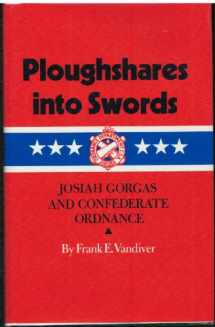
Ploughshares into Swords: Josiah Gorgas and Confederate Ordnance (Volume 36) (Williams-Ford Texas A&M University Military History Series)
Book details
Summary
Description
Begun in the late 1940s, before Vandiver enrolled in the doctoral program at Tulane University, research for this book started with his interviewing the Confederate ordnance chief's daughters and included perusal of Gorgas's 1857-1877 journals.
Gorgas is credited with creating, in the Confederacy's ordnance department, "success beyond expectation." With the South having far less capacity to produce arms than the North and with communications from the field severely hampered throughout the war, the former West Pointer nevertheless was responsible for the fact that, as some have argued, the South kept the war alive as long as it did.
Supplying the South with firearms was such a problem in the beginning that pikes and lances had been ordered to arm troops. Lead shortages were chronically low, and at one point in 1863 a bureau circular restricted cartridge issues to three per man per month. But supplies never dried up completely, and Gorgas kept his eye on the situation in every theater.
As Vandiver wrote, "one of the greatest testimonials to the efficient manner in which Gorgas had organized the bureau is the performance of his field officers during the last hectic days before the surrender of the Army of the Tennessee." Vandiver adds that "the main reason why the bureau managed to go on functioning was that Gorgas had given so much authority to the lower echelons." President Jefferson Davis rewarded Gorgas with a promotion to brigadier general in November 1864. "[W]ith Sherman ravaging the industrial heart of the shrinking Confederacy, Gorgas had done all he could to make his bureau weather the hurricane," Vandiver wrote, adding, "He thought he had succeeded, and he was almost right."
In its review of the 1952 edition, the Southwest Review remarked that "the story of the munitions supply of the C.S.A. is the authentic miracle of military history." The Journal of Southern History stated that "Dr. Vandiver, with the use of much unpublished manuscript material has here made a valuable contribution to Confederate history."


We would LOVE it if you could help us and other readers by reviewing the book
Book review




